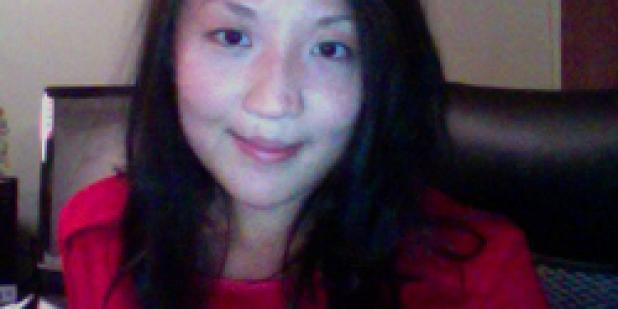Join us for a free one-day workshop for educators at the Japanese American National Museum, hosted by the USC U.S.-China Institute and the National Consortium for Teaching about Asia. This workshop will include a guided tour of the beloved exhibition Common Ground: The Heart of Community, slated to close permanently in January 2025. Following the tour, learn strategies for engaging students in the primary source artifacts, images, and documents found in JANM’s vast collection and discover classroom-ready resources to support teaching and learning about the Japanese American experience.
A Difference of Worlds: A Comparative Study of Turn-of-the-Century American and Chinese Utopian Fiction
Shaoling Ma's project examines late-19th and early-20th century American and Chinese utopian novels.

By SHAOLING MA
Thanks to the generosity of the USC U.S.-China Institute, I was able to carry out summer research work toward my Ph.D. dissertation in Beijing, China. My comparative project examines late-19th and early-20th century American and Chinese utopian novels by Edward Bellamy, Mark Twain, Wu Jianren, and Xu Nianci, among others. The project aims to show how the narration of ideal, perfect worlds is utopian because of its presupposition, implicit or explicit, that nationalism can be superseded by internationalism or a general belief in world governance.
The research grant from the U.S.-China Institute allows me to focus on the late Qing portion of the project, and access rare books and especially late Qing journals that are unavailable at USC. During my four weeks in Beijing, I visited the National Library of China and Beijing University, and mostly benefited from the latter’s special collection devoted to housing late Qing journals. There, I analyzed and collected important articles from two journals edited by Wu Jianren and Xu Nianci, namely Monthly Novels 《月月小說》and Xiaoshuo Lin 《小说林》. I also paid close attention to the well-known New Novel 《新小说》published by Liang Qichao, where the term “scientific novel” was first introduced in its first volume in October 1902. The ways in which late Qing literary journals inventively categorize novels by their genres and sub-genres, such as the early classification of utopian novels under “idealistic novels,” confirm the political weight that late Qing writers attributed to utopian fiction. This is why political essays in the Politics and Arts Fortnightly 《政艺通报》, Qingyi Bao 《清议报》、and New Citizens’ Paper 《新民丛报》, etc., were just as pertinent for my research, as they constantly bridge my reading of the novels to the political, socio-economic and cultural contexts of the time.
Prior to this research trip to Beijing, I was restricted to texts by popular Chinese thinkers such as Liang and Kang Youwei whose works have been translated into English. But after being exposed to relatively unknown intellectuals such as Gao Xun, Chen Qubing, and Liu Guanghan, I was able to broaden the scope of my dissertation and pay attention to the nuances in the fabric of late Qing reformist and revolutionist discourses. For instance, while I was previously uncertain about the significant relations between Chinese views of nationalism and internationalism, I was able to gather, from these late Qing journal articles, that thinkers were precisely preoccupied with this same question. In one instance, a writer even used inferential logic to prove how there can be different nationalities in the world. I was also able to conclude that nationalism was never the final aim for these late Qing, pre-1911 revolution intellectuals, and how, internationalism was always perceived as a higher stage of civilization. Yet the problem, as a 1903 essay in the Politics and Arts Fortnightly points out, is how to attain internationalism without thereby destroying nations the same way that nationalism is achieved by superseding the feudal-family structures. Moreover, I was able to access old photographs and writings by John Fryer, an important figure in the translation of English texts into Chinese in the translations department of the Jiangnan Arsenal. His writings on the relation between nationhood, science, and knowledge are helpful for my recently completed chapter on technology and nationalism. All in all, these insights are invaluable as I aim to finish my dissertation by early January, 2012.
In addition to the main archival research purpose of this trip, I was able to receive kind and generous supervision from Professor Wang Longlin and Professor Wu Yan from Capital Normal University. Their expertise in late Qing science fiction novel and the development of Chinese literary culture on the whole, helped guide me in my first visit to Beijing, and my intellectual foray into the Chinese academic environment.
Click here to view projects of other 2011-2012 USCI Graduate Summer Fieldwork Grant receipients.
Featured Articles
Please join us for the Grad Mixer! Hosted by USC Annenberg Office of International Affairs, Enjoy food, drink and conversation with fellow students across USC Annenberg. Graduate students from any field are welcome to join, so it is a great opportunity to meet fellow students with IR/foreign policy-related research topics and interests.
RSVP link: https://forms.gle/1zer188RE9dCS6Ho6
Events
Hosted by USC Annenberg Office of International Affairs, enjoy food, drink and conversation with fellow international students.
Join us for an in-person conversation on Thursday, November 7th at 4pm with author David M. Lampton as he discusses his new book, Living U.S.-China Relations: From Cold War to Cold War. The book examines the history of U.S.-China relations across eight U.S. presidential administrations.




